Abstract
A method is presented by which the steady-state properties of an homogeneous, permselective membrane at uniform temperature can be predicted without knowledge of its thermodynamic properties other than assuming that they are functions only of local mole fractions in the membrane. By making this assumption, it is shown how the ionic conductances can be calculated at any point in the membrane from two sets of measurements, (a) Rsymm, the steady-state resistance of the membrane measured between identical solutions and (b) V0, the potential difference between nonidentical solutions for zero current. These two parameters are measured at different external solution compositions (e.g. a varying sodium-potassium ratio ranging from zero to infinity). From these measurements it is shown how the flux equations may be integrated without a knowledge of mobilities, activity coefficients, and other interior membrane parameters. The application of the method to fixed site membranes with variable mobilities is described and the theory for this particular case has also been verified experimentally in glass membranes.1 A possible application to biological membranes is discussed and a comparison is made between the present treatment and previous treatments used to calculate the steady-state properties of cell membranes, notably the theory of Teorell, Meyer, and Sievers and the constant field theory.
Full text
PDF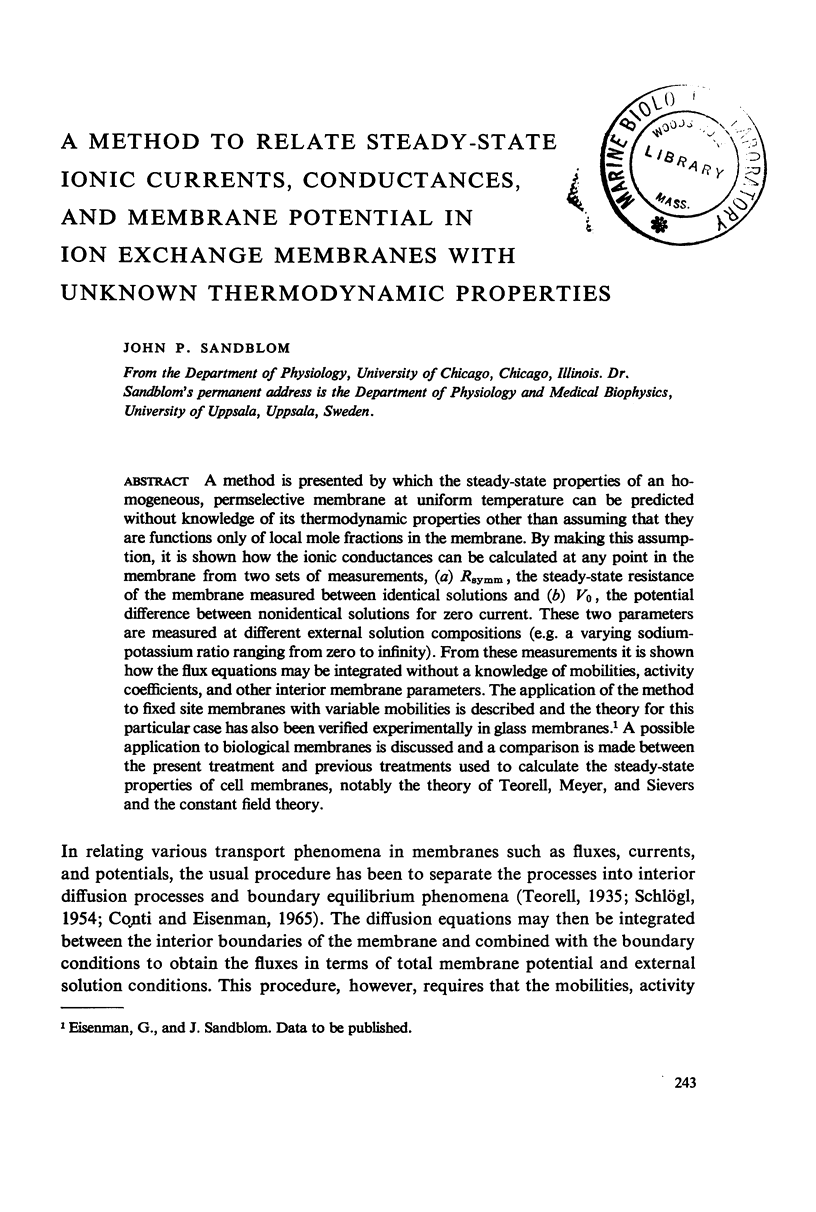
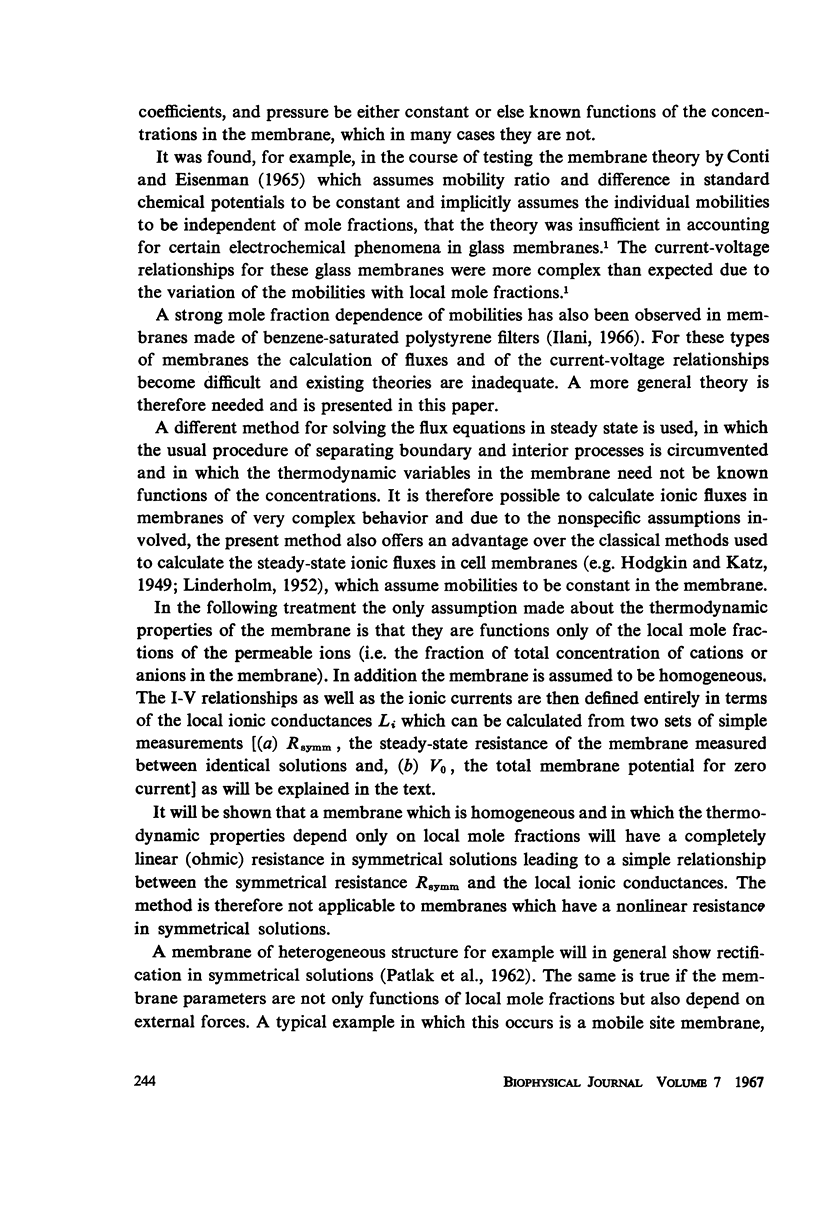
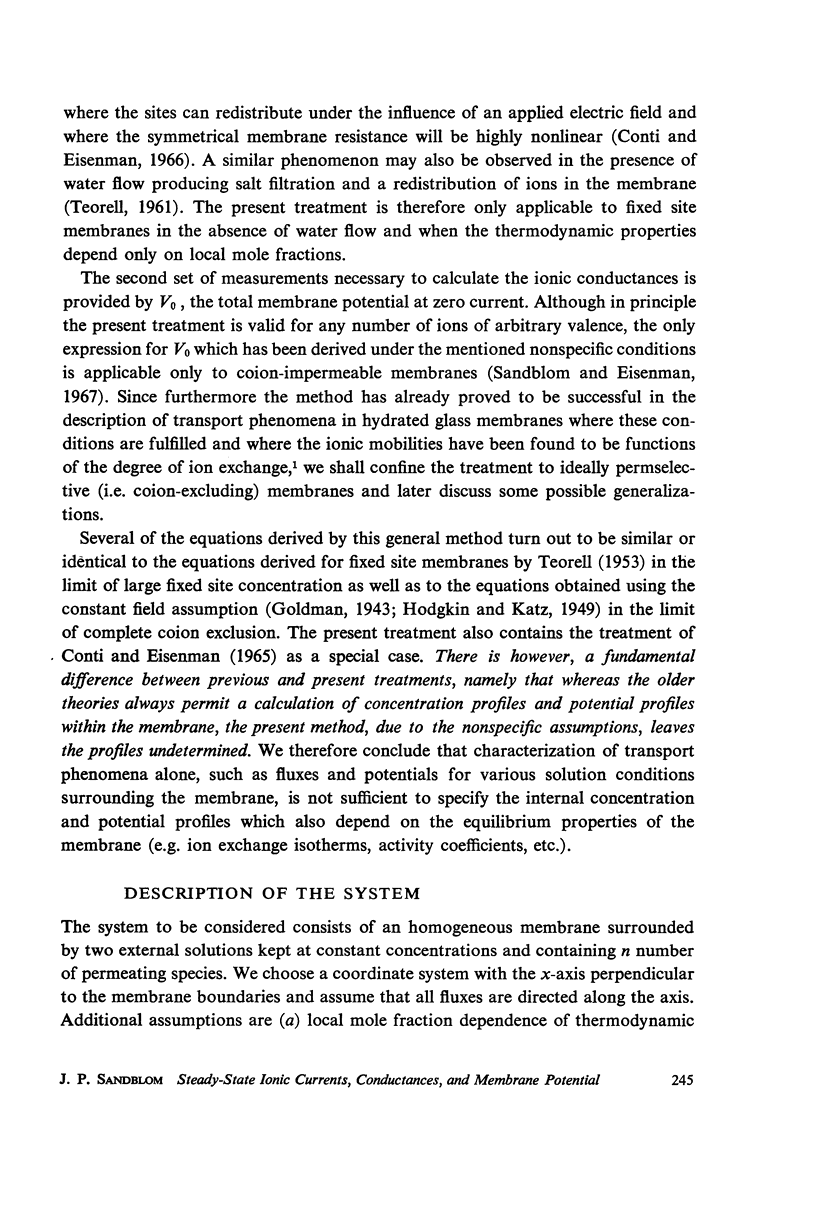
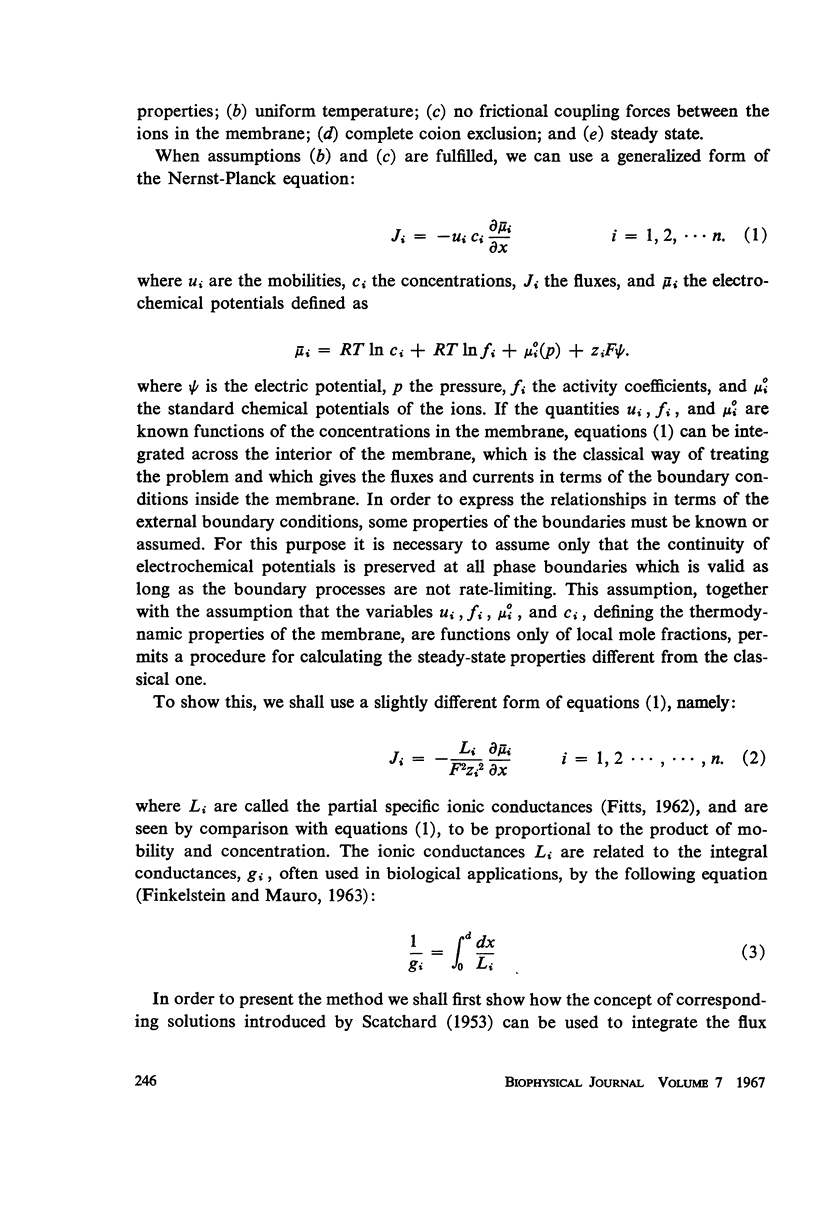
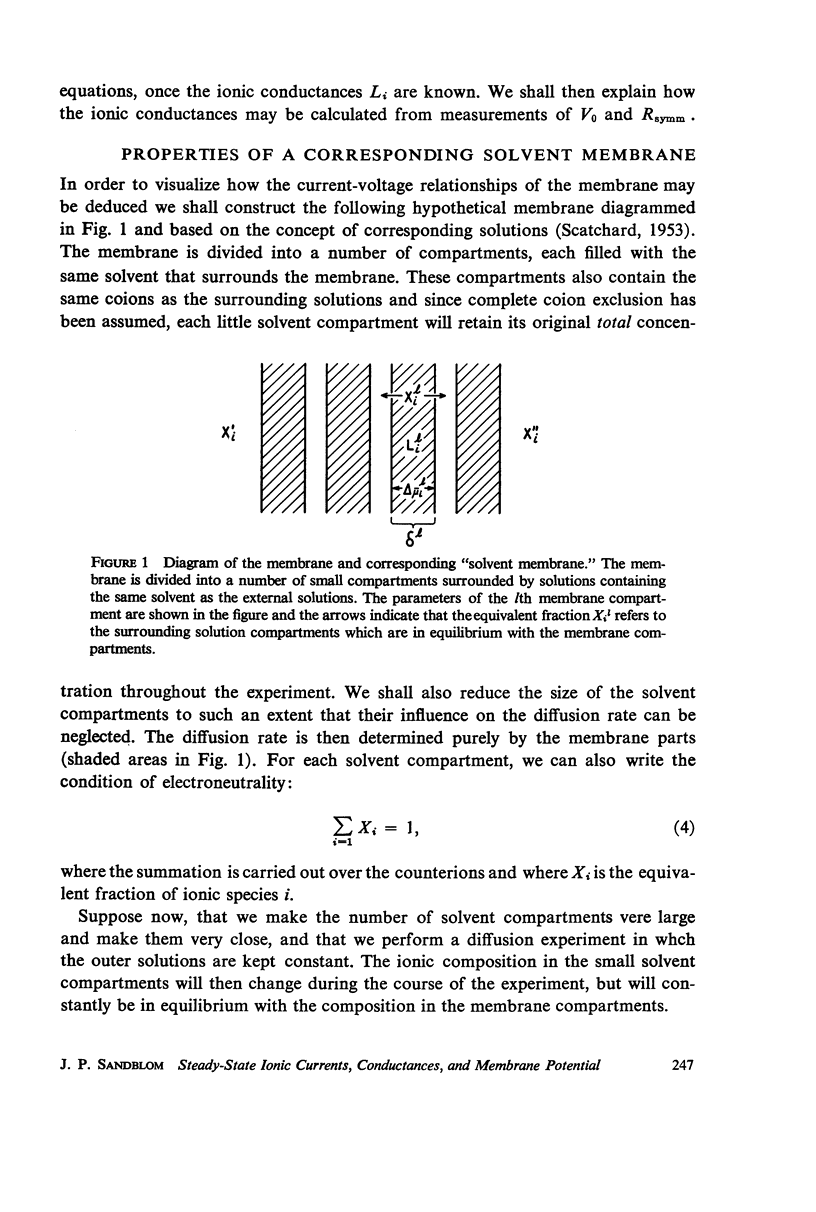
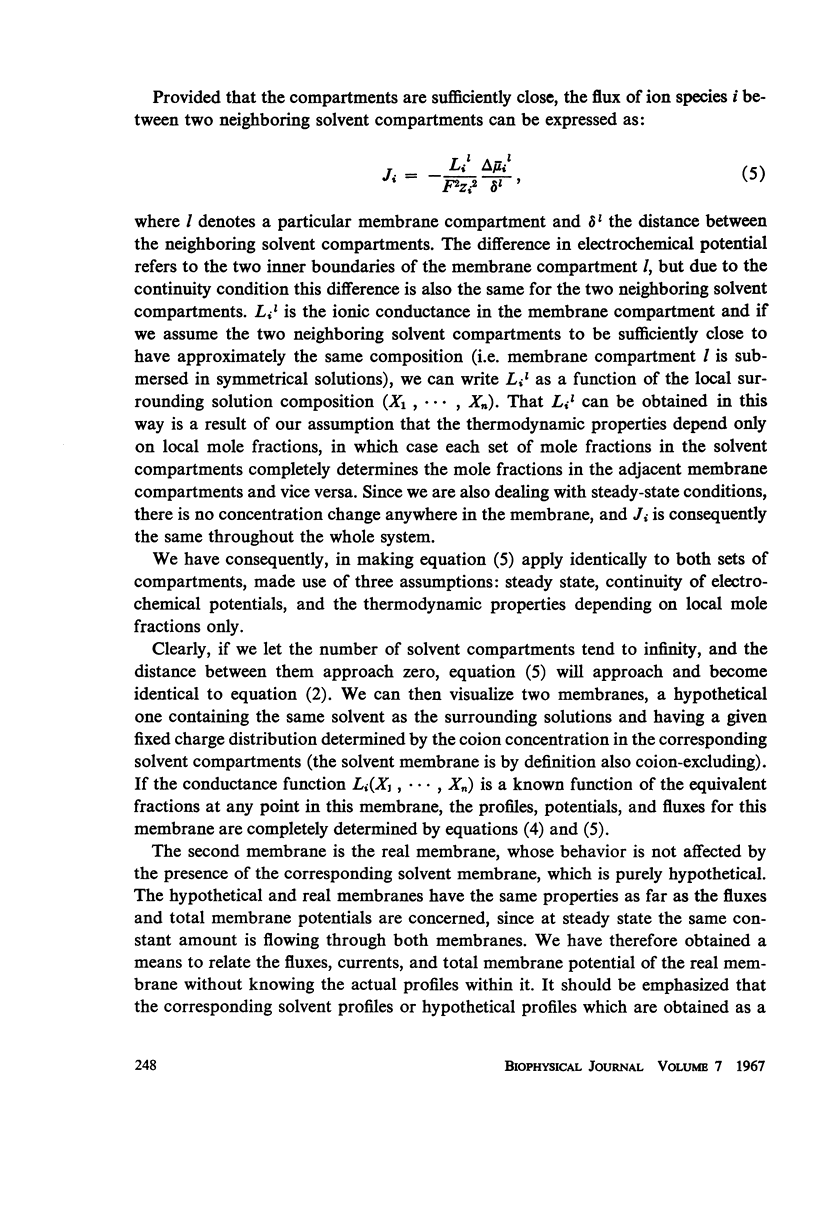
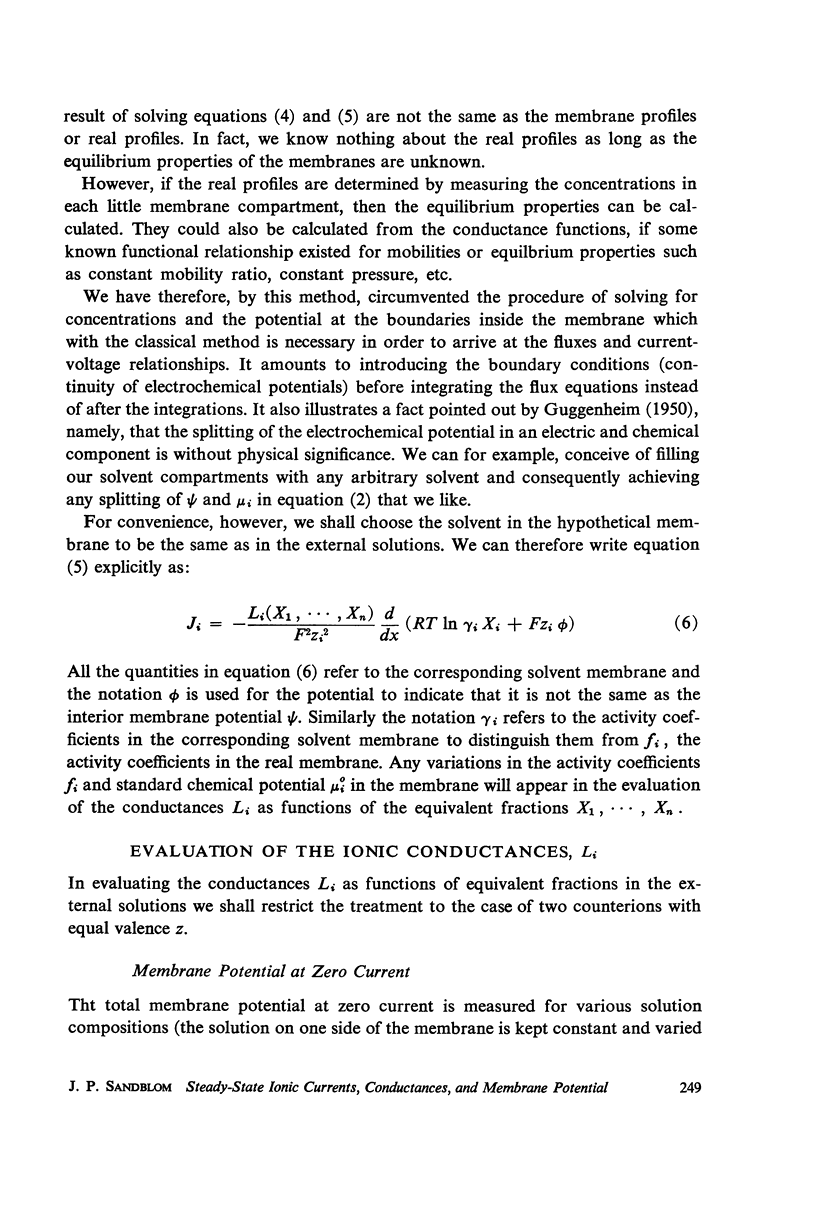
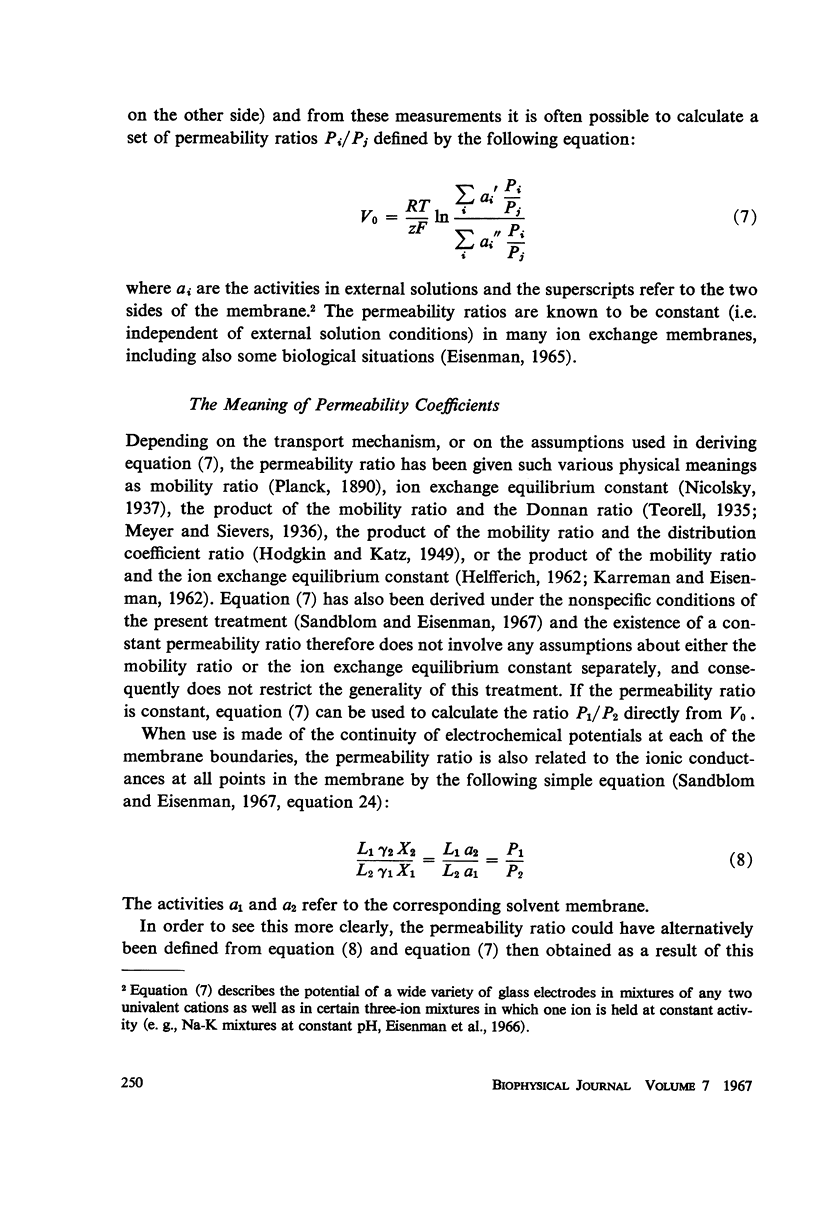
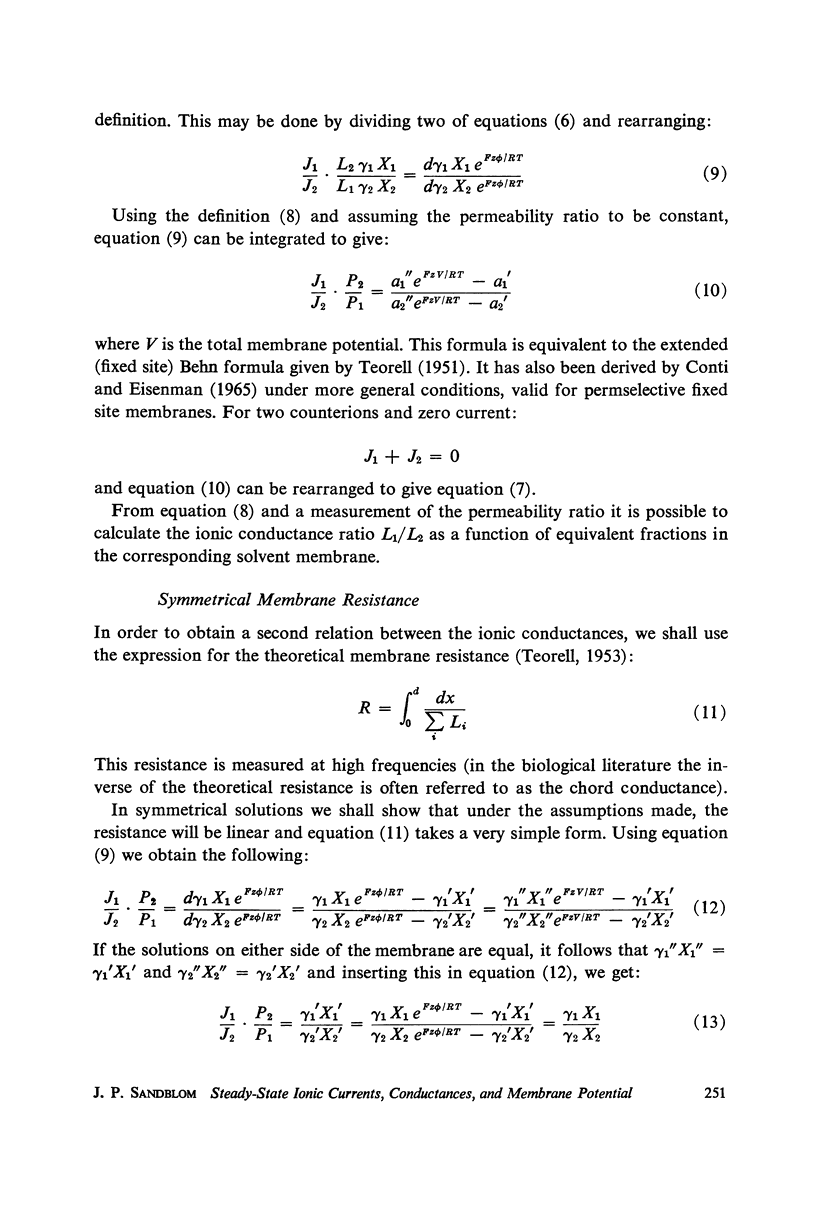
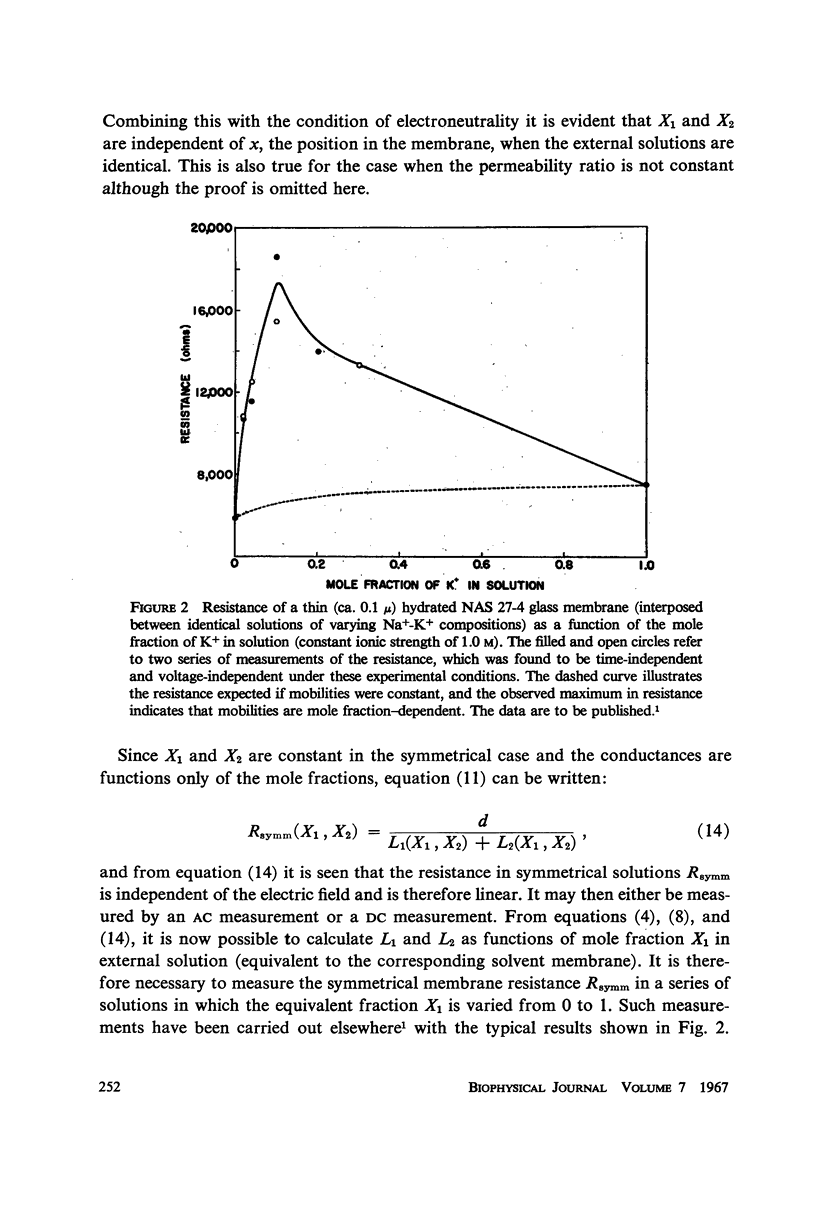
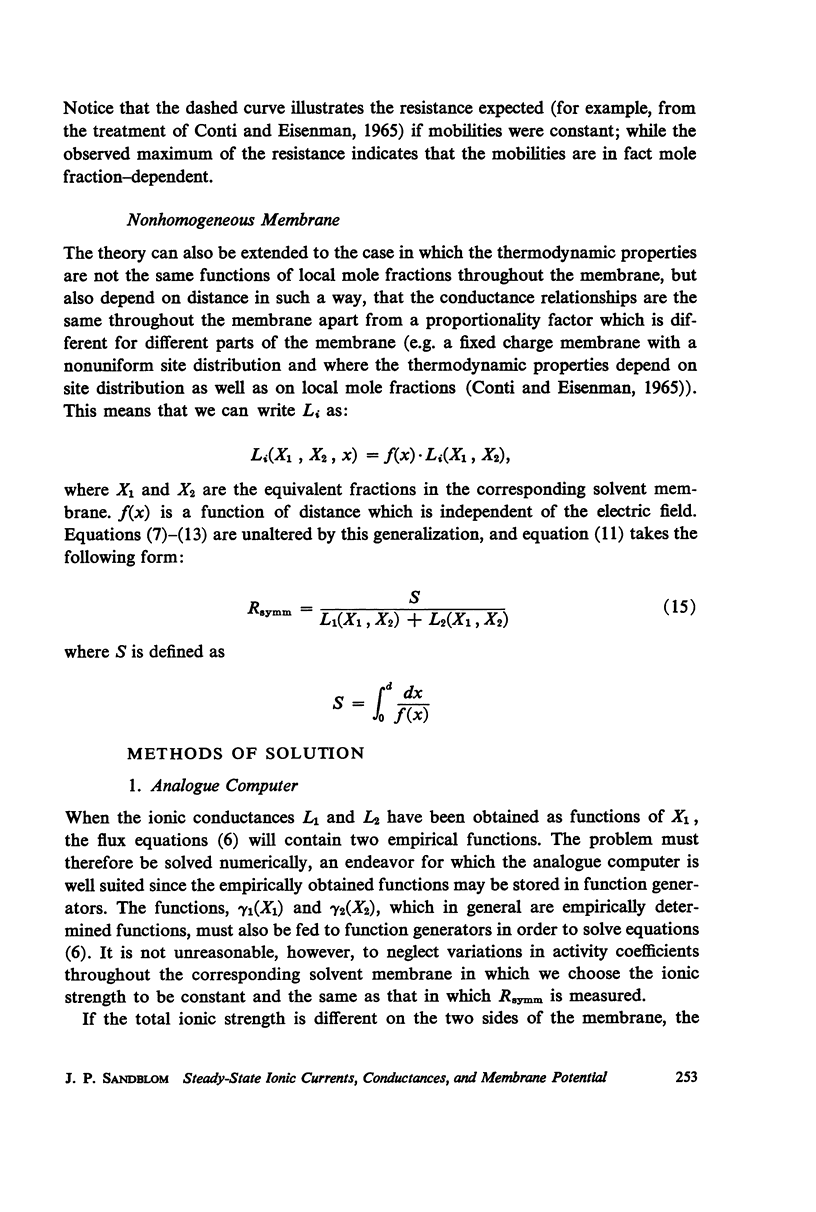
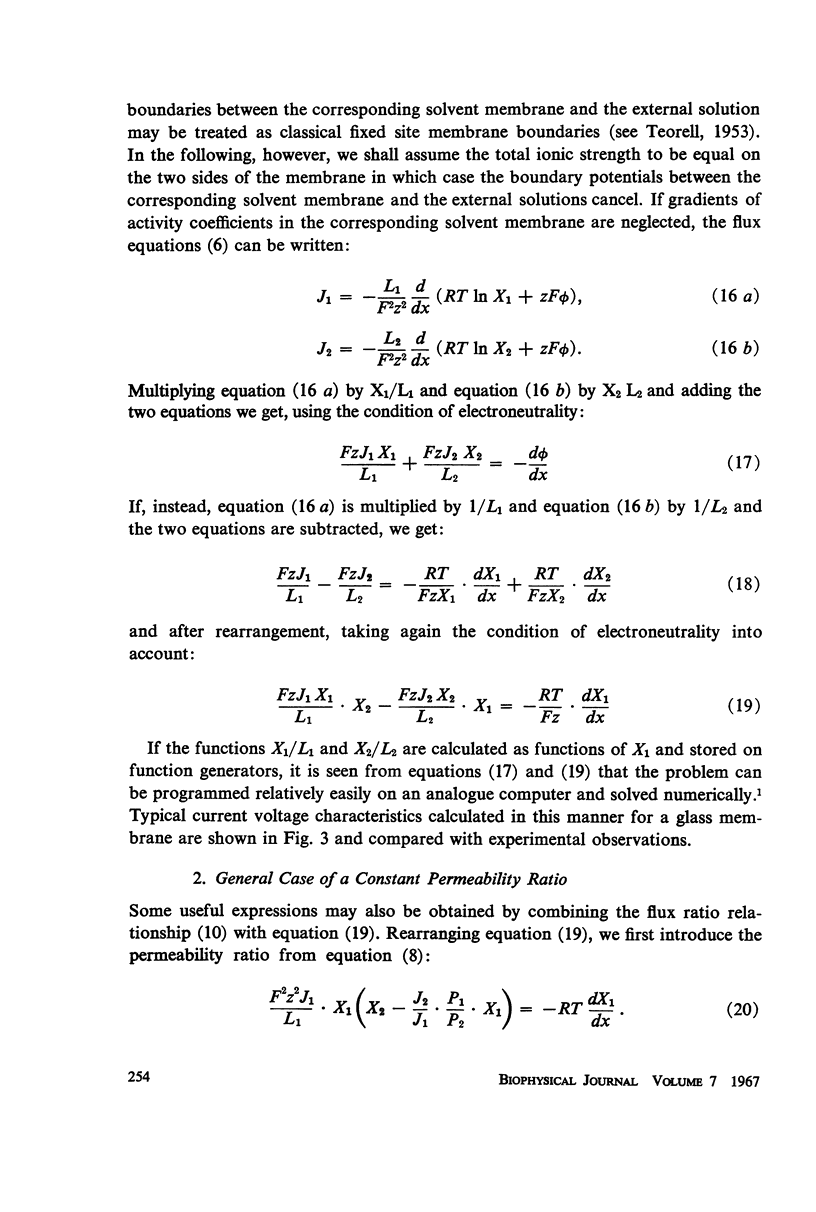
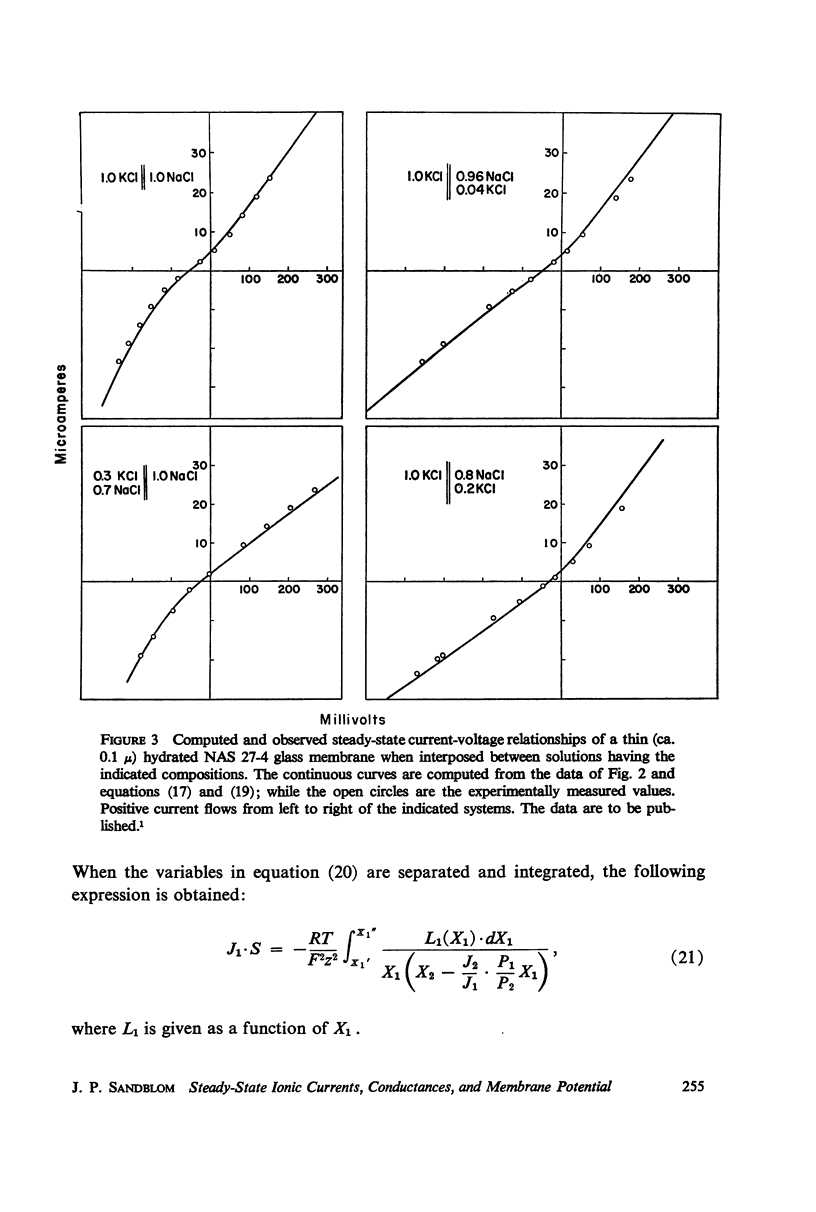
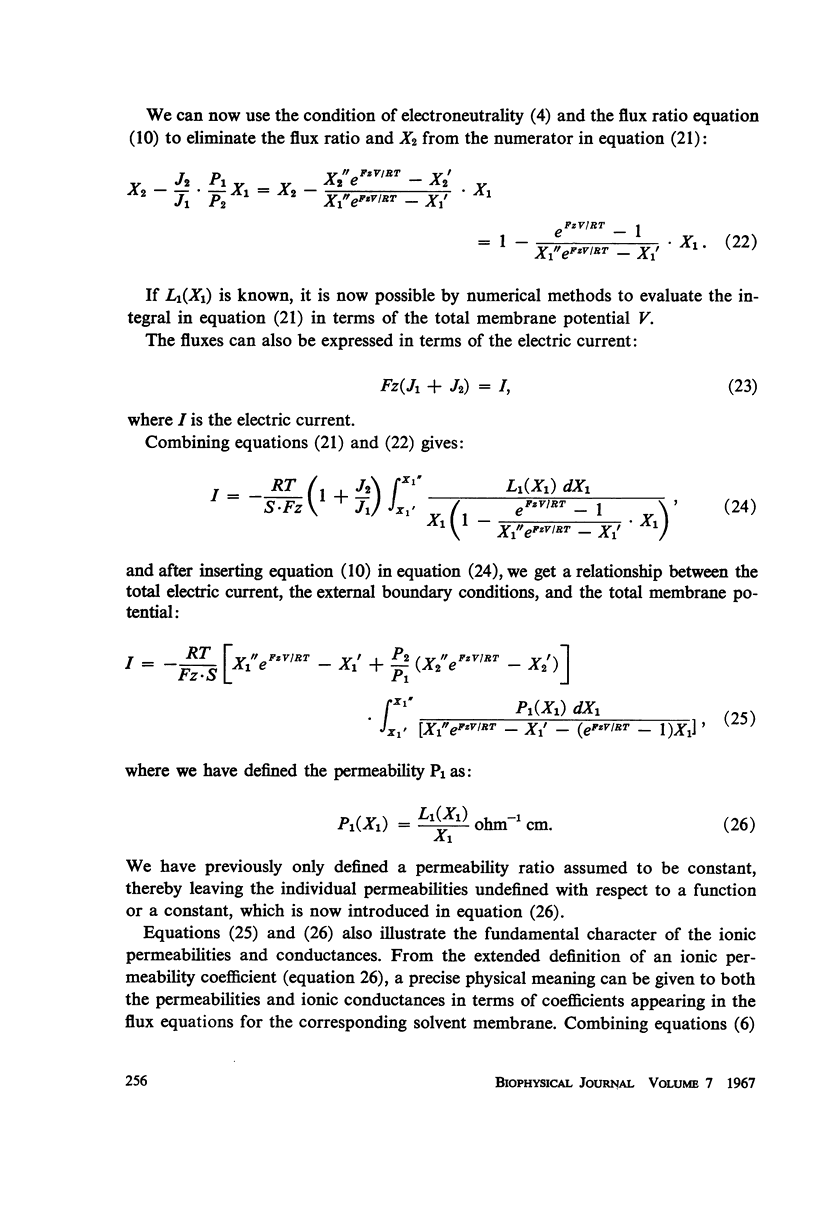
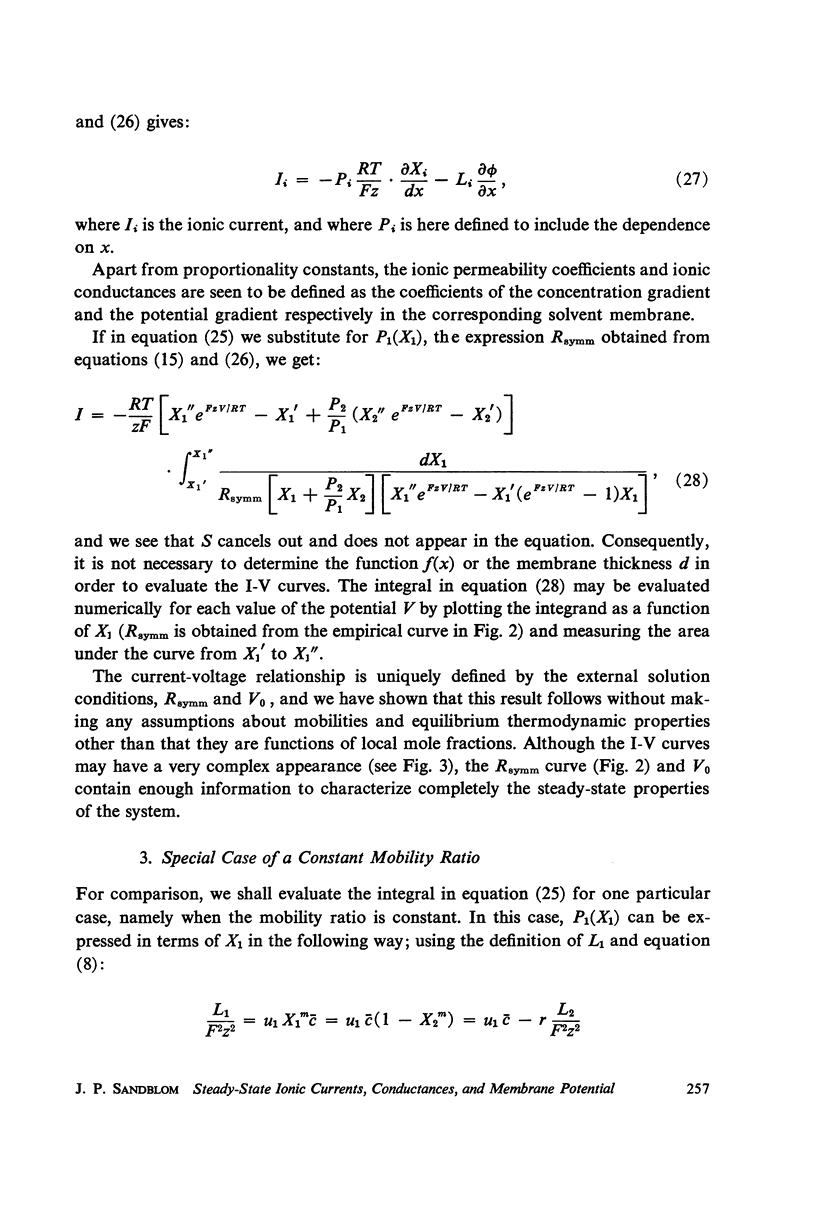
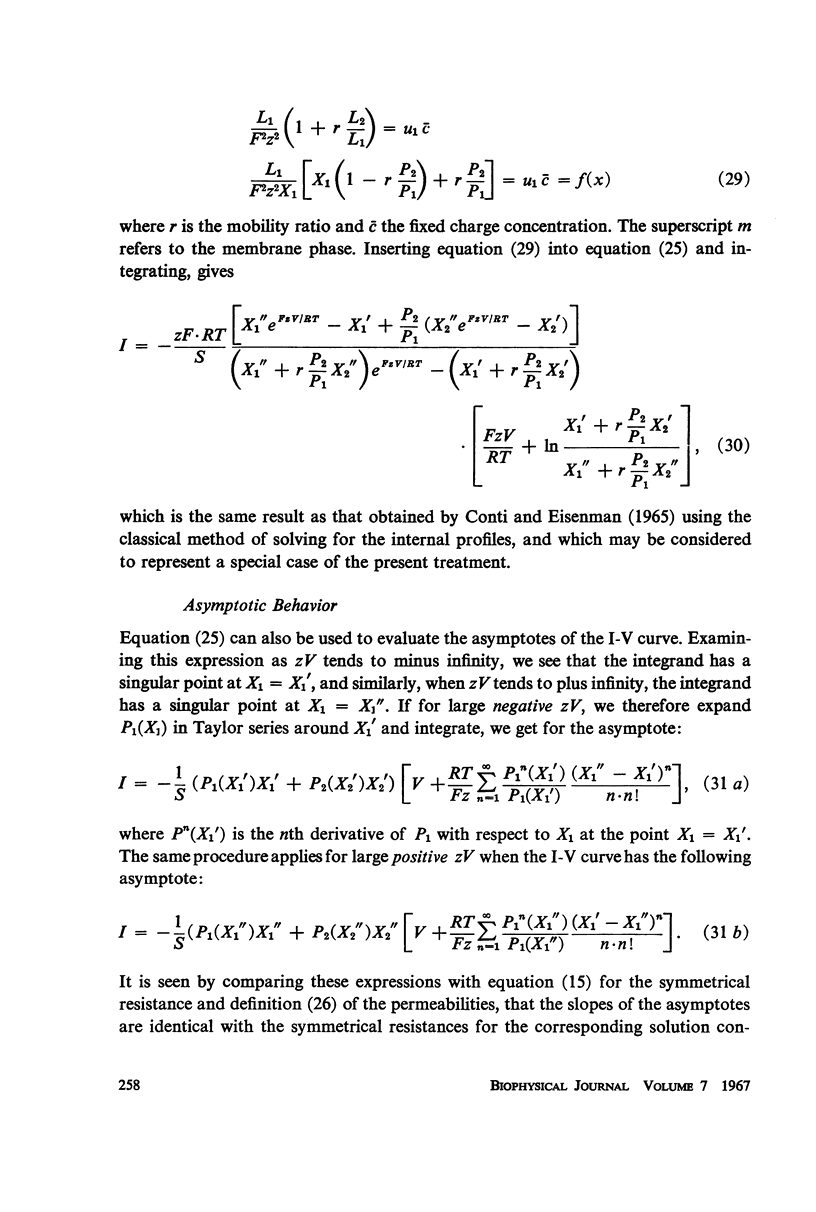
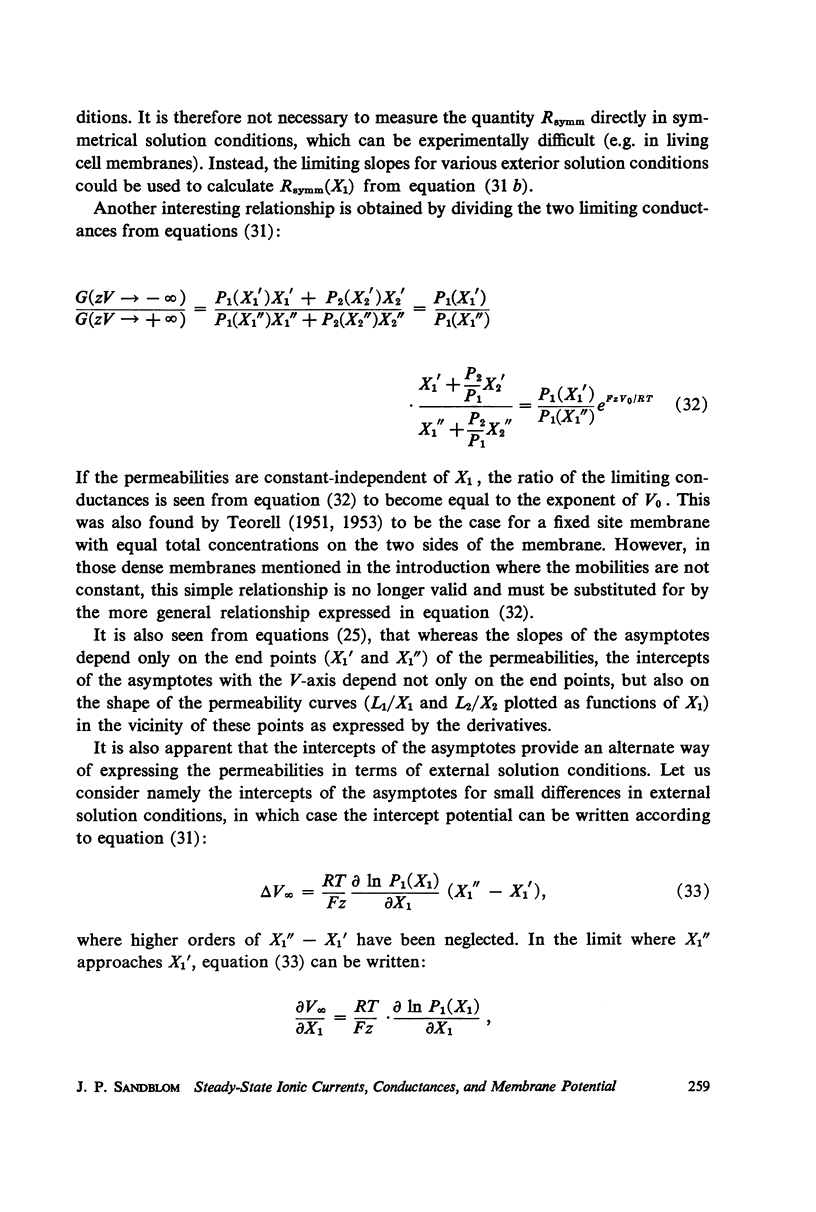
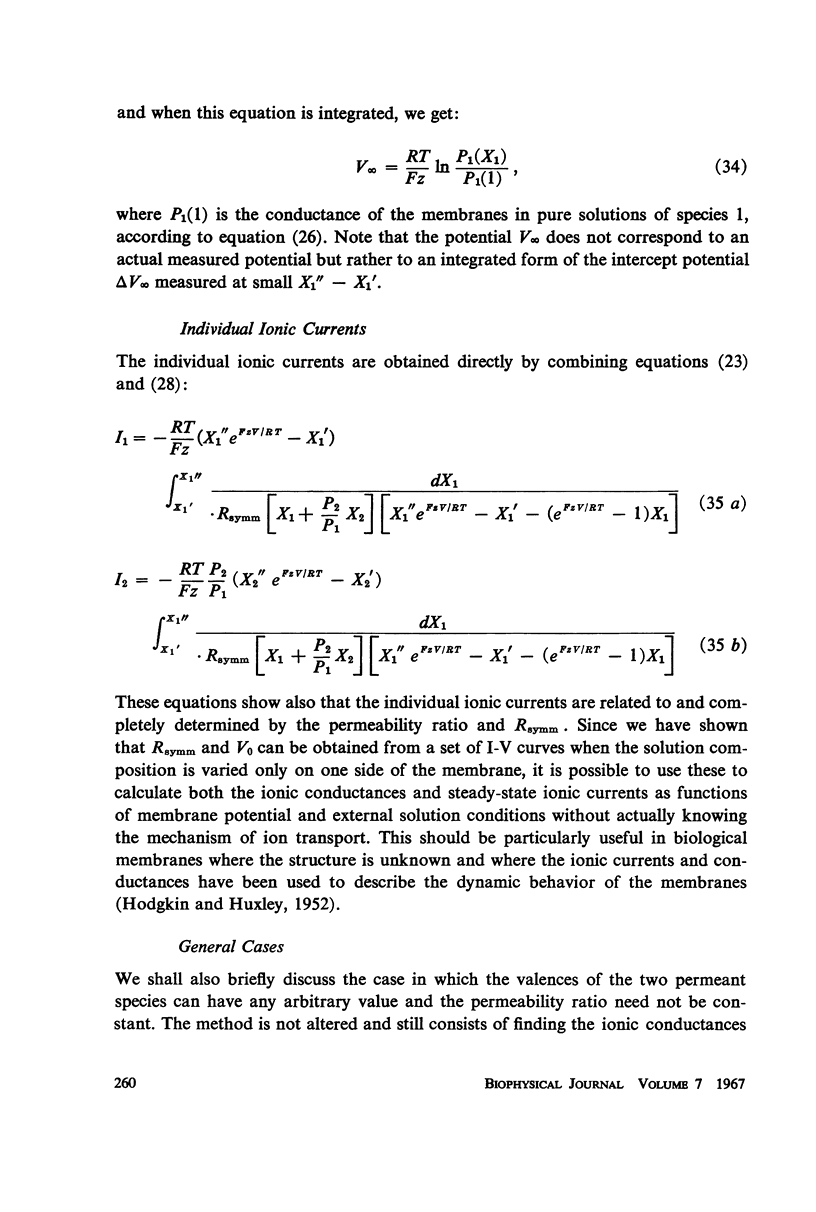
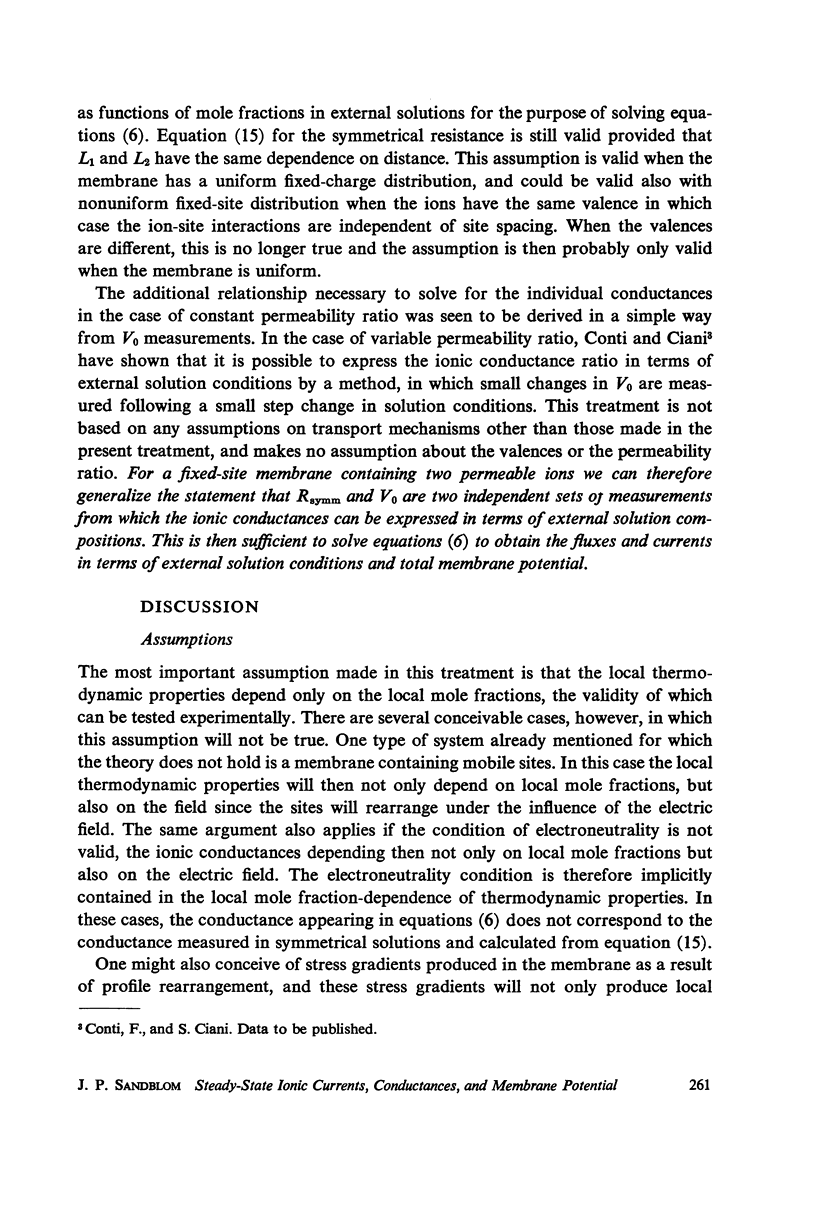
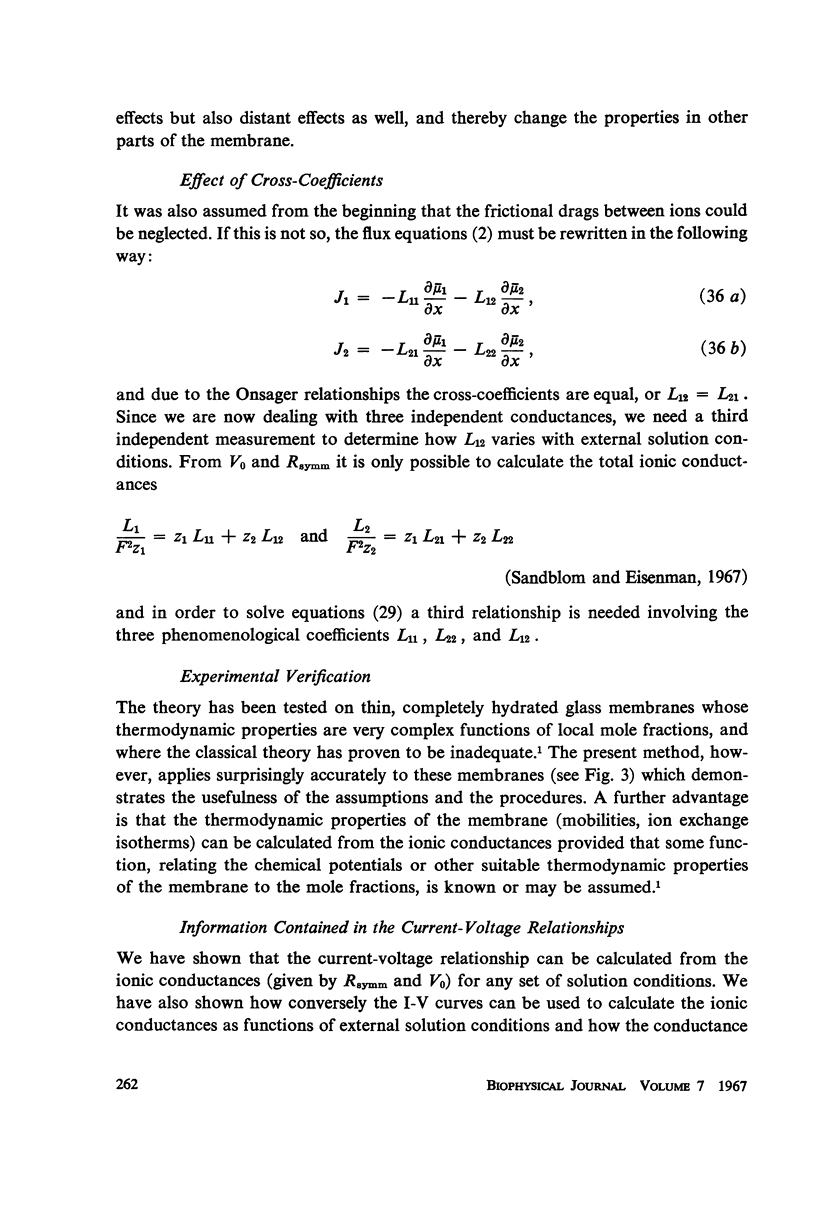
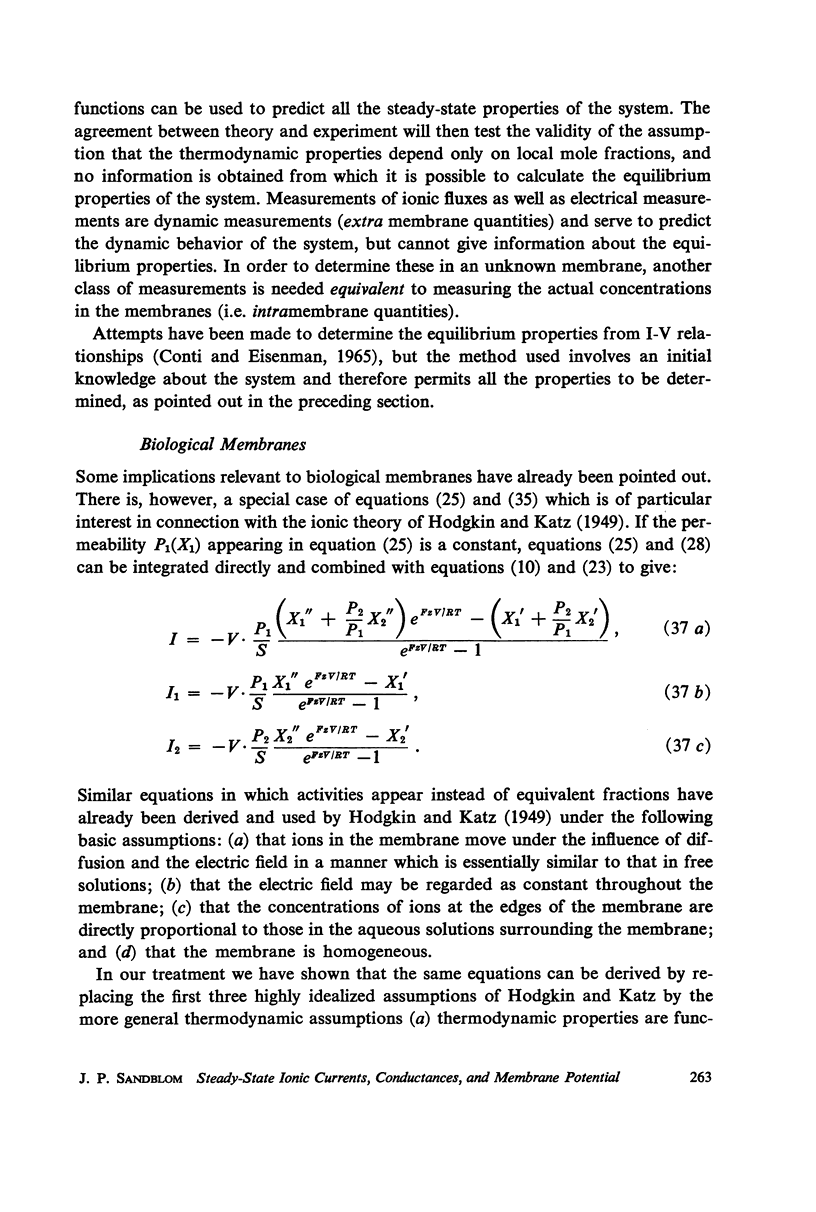
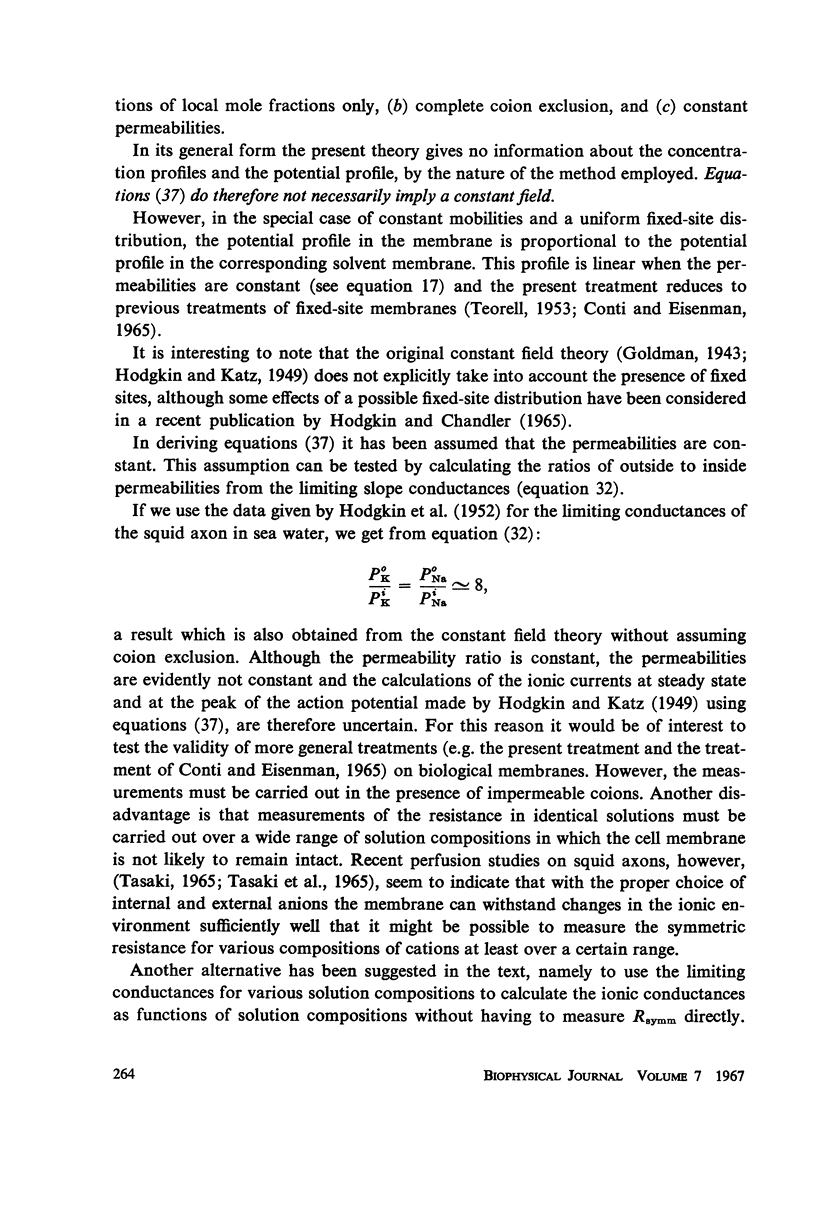
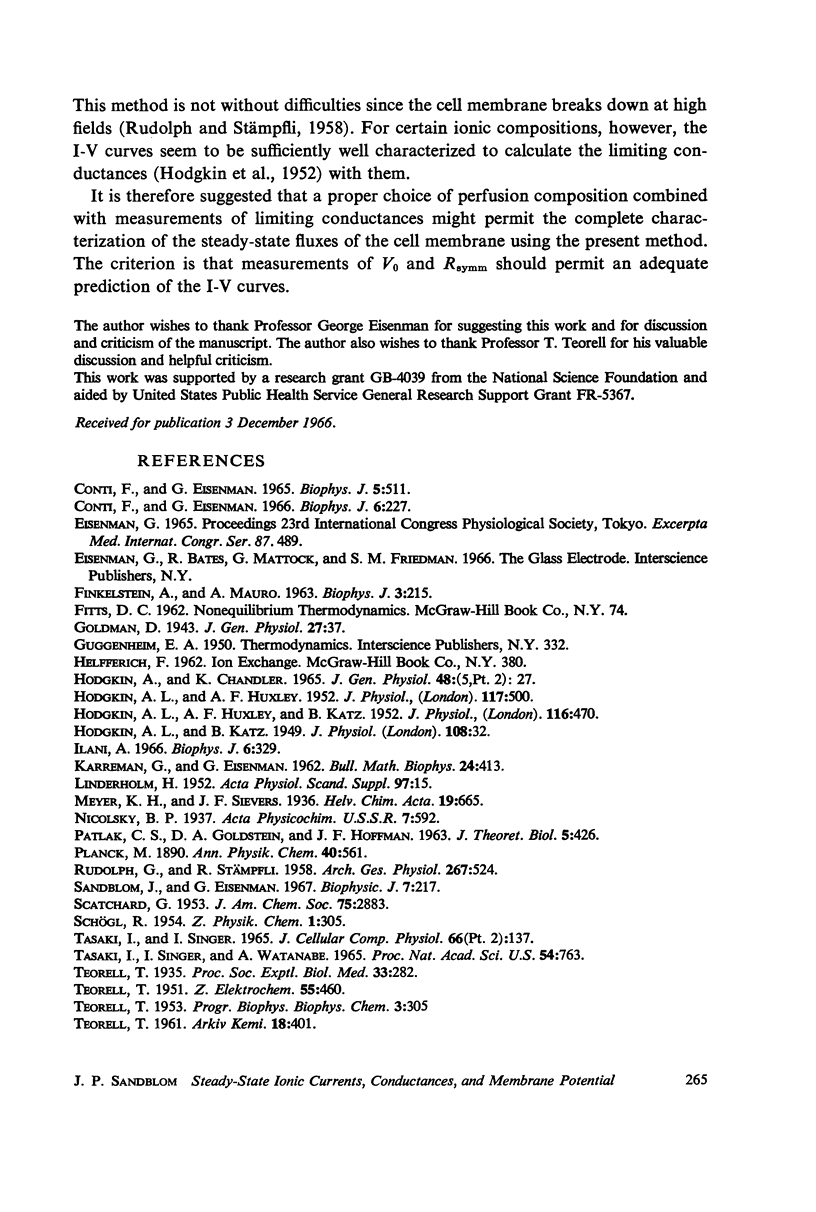
Selected References
These references are in PubMed. This may not be the complete list of references from this article.
- Conti F., Eisenman G. The steady state properties of ion exchange membranes with fixed sites. Biophys J. 1965 Jul;5(4):511–530. doi: 10.1016/S0006-3495(65)86732-7. [DOI] [PMC free article] [PubMed] [Google Scholar]
- Conti F., Eisenman G. The steady-state properties of an ion exchange membrane with mobile sites. Biophys J. 1966 May;6(3):227–246. doi: 10.1016/S0006-3495(66)86653-5. [DOI] [PMC free article] [PubMed] [Google Scholar]
- Finkelstein A., Mauro A. Equivalent Circuits as Related to Ionic Systems. Biophys J. 1963 May;3(3):215–237. doi: 10.1016/s0006-3495(63)86817-4. [DOI] [PMC free article] [PubMed] [Google Scholar]
- HODGKIN A. L., HUXLEY A. F. A quantitative description of membrane current and its application to conduction and excitation in nerve. J Physiol. 1952 Aug;117(4):500–544. doi: 10.1113/jphysiol.1952.sp004764. [DOI] [PMC free article] [PubMed] [Google Scholar]
- Ilani A. Interaction between cations in hydrophobic solvent-saturated filters containing fixed negative charges. Biophys J. 1966 May;6(3):329–352. doi: 10.1016/S0006-3495(66)86660-2. [DOI] [PMC free article] [PubMed] [Google Scholar]
- Patlak C. S., Goldstein D. A., Hoffman J. F. The flow of solute and solvent across a two-membrane system. J Theor Biol. 1963 Nov;5(3):426–442. doi: 10.1016/0022-5193(63)90088-2. [DOI] [PubMed] [Google Scholar]
- RUDOLPH G., STAMPFLI R. Anodenöffnungserregungen einzelner Ranvier-Schnürringe. Pflugers Arch. 1958;267(5):524–531. doi: 10.1007/BF00361739. [DOI] [PubMed] [Google Scholar]
- Sandblom J. P., Eisenman G. Membrane potentials at zero current. The significance of a constant ionic permeability ratio. Biophys J. 1967 May;7(3):217–242. doi: 10.1016/S0006-3495(67)86585-8. [DOI] [PMC free article] [PubMed] [Google Scholar]
- Tasaki I., Singer I., Watanabe A. Excitation of internally perfused squid giant axons in sodium-free media. Proc Natl Acad Sci U S A. 1965 Sep;54(3):763–769. doi: 10.1073/pnas.54.3.763. [DOI] [PMC free article] [PubMed] [Google Scholar]


